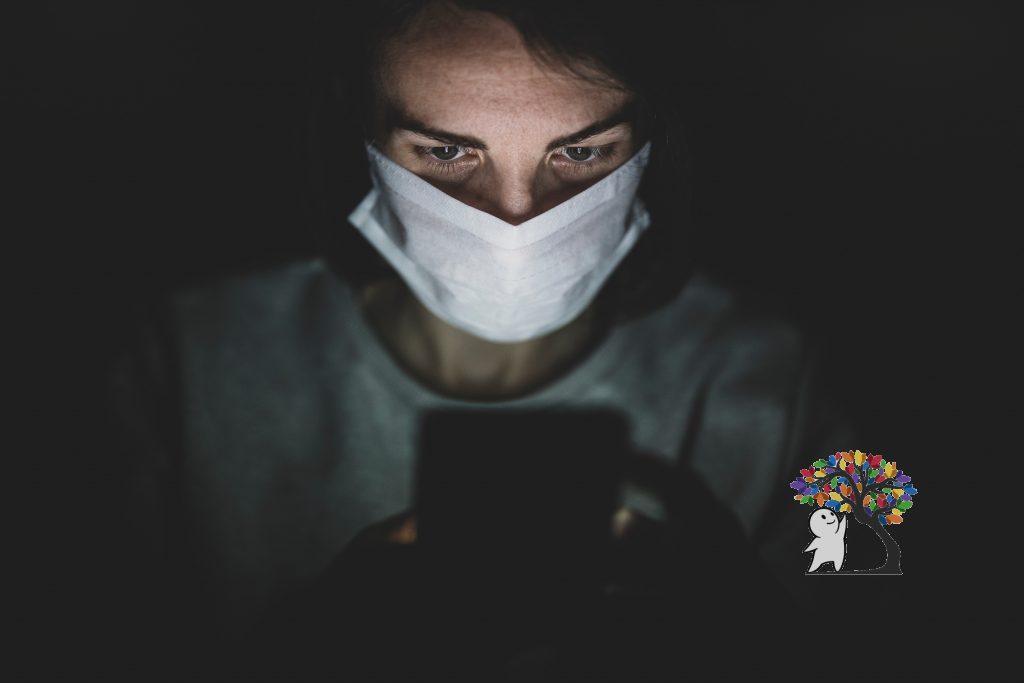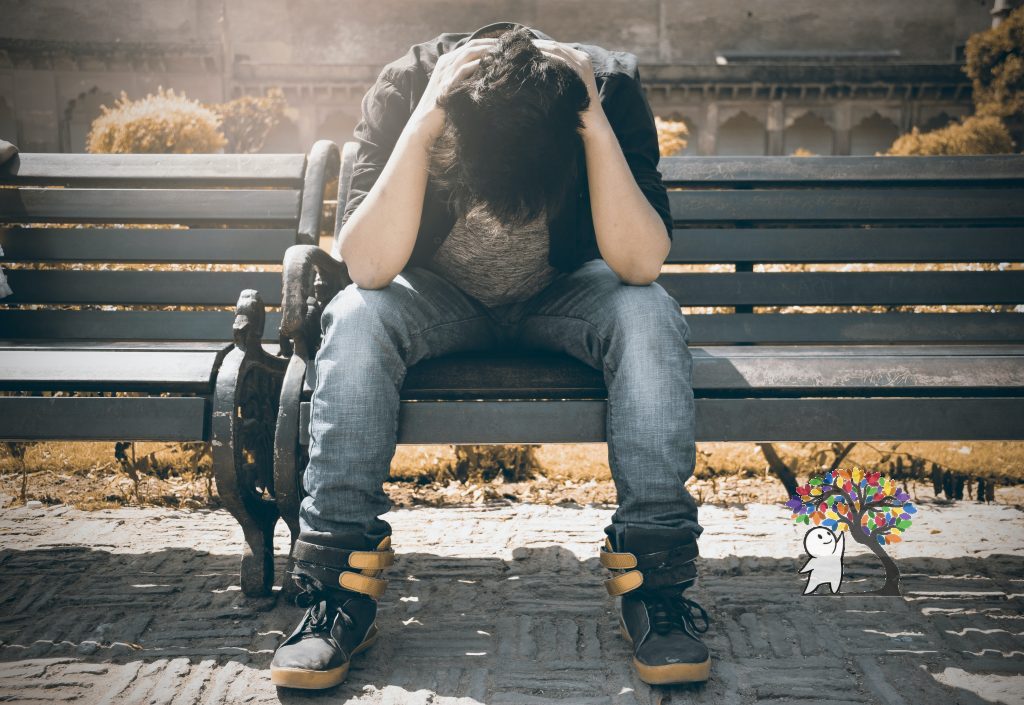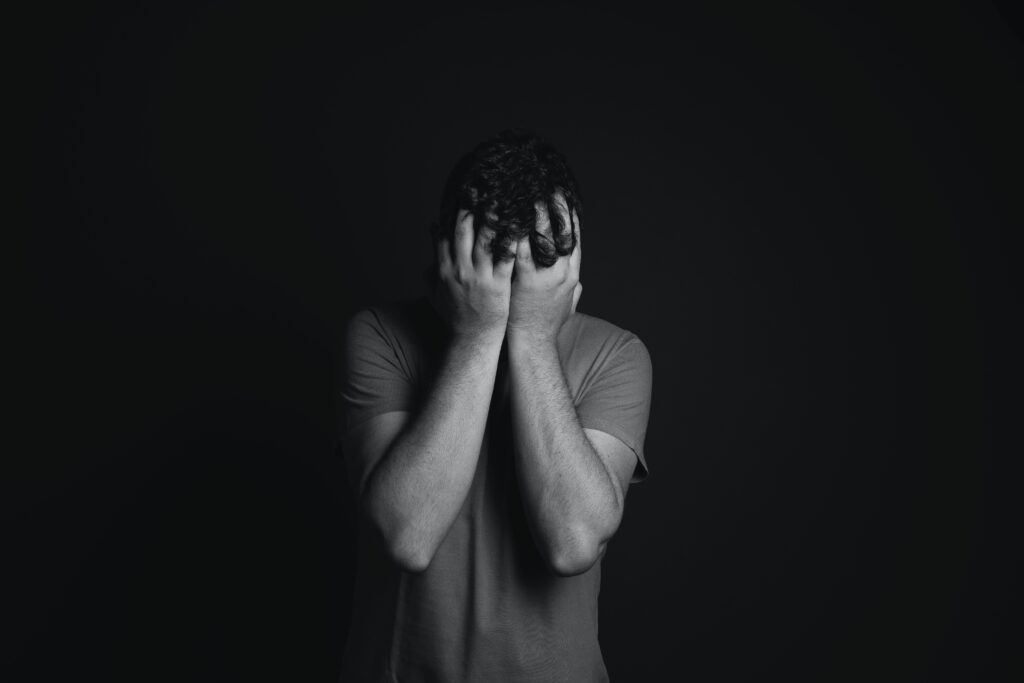8 Struggles People With Anxiety Can Relate To

Anxiety seems to be so mainstream, these days. Between the growing presence of social media and the COVID-19 pandemic, people are feeling more stressed out than ever. Still, there’s a difference between experiencing anxiety and having an anxiety disorder: feelings of nervousness or restlessness will go away, but sufferers of anxiety disorders get nearly no break from their symptoms. This totally changes the way they communicate, behave, and even think. If you have General Anxiety Disorder (GAD) or another anxiety disorder, these battles might be old news to you. Of course, this article is not meant to diagnose or treat any mental illness, but we hope it can be informative and relatable nonetheless.
Here are 8 struggles people with anxiety can relate to:
1. Little decisions aren’t so little
When you have anxiety, everything can feel like a big deal. It might not really matter what you have for lunch today, but, when your brain is moving at a mile a minute, it’s not hard to invent a hypothetical situation where this choice could mean life or death. There are so many what ifs to consider, and the anxious brain wants to examine them all.
It’s important to remember why your mind stays stuck on something: it’s trying to protect you! The what ifs are meant to prepare your brain to deal with real situations, should they arise. So be kind to yourself if a choice doesn’t come so easily to you. It’s not for nothing, even if it is disruptive or frustrating.
2. Which comes first? Anxiety or sleep disruption?

If you find it difficult to get a good night’s sleep with an anxious brain, you’re not alone. According to the Anxiety and Depression Association of America (ADAA), stress and anxiety are closely related to (and often coincide with) sleep disorders. These can range from something as simple as nightmares or restlessness to a more complex condition such as bruxism (grinding your teeth while you sleep), or narcolepsy, which causes you to fall asleep spontaneously, often at inappropriate times.
Here’s the catch: it can be hard to tell whether sleeping troubles or anxious thoughts are the root of the problem. Anxiety can cause a lack of sleep just as easily as a lack of sleep can make you feel anxious. Still, it’s never a bad idea to consider revamping your nighttime and morning routines in order to feel more rested, focused, and relaxed.
3. The worst case scenario always seems more likely than it is
When you’ve been anxious for a long time, your brain has gotten used to being vigilant and aware of danger, even when none is present. This is why it becomes so easy to ruminate on a negative or intrusive thought. Jumping past the likely outcomes to a worst case scenario becomes nearly automatic. It’s no surprise that everyday occurrences can send your nervous system spinning when you’ve become so good at searching for anything that might go wrong.
Anxious Psych2Goers, we offer you a challenge: if you notice yourself imagining a disastrous outcome or event, see if you can come up with one other scenario that may occur instead. Is one more likely than the other to take place?
4. You have no clue if/when others can sense your anxiety
A common worry among anxious individuals is whether others can tell when they’re suffering from anxiety. Honestly, no two people experience anxiety in the same way, nor are any two situations the same. Unless someone says so, there’s no real way to tell if others know when you’re not feeling well. And if they can tell, how will they react? It’s hard to know, which can be anxiety-inducing in itself.
If anything, anxiety is not as noticeable as you fear it may be; there are so many other, restless, sweaty, awkward people in the world. Besides, others are probably so worried about themselves that they couldn’t care less if you look a little flushed or act a little odd.
5. You can literally worry yourself sick
Whether or not you have an anxiety disorder, you probably know what it’s like to be so stressed or worried that you feel like you might throw up or pass out. Unfortunately, these intense responses happen to nearly everyone at least once in their lives. When you suffer from anxiety, though, severe reactions become normal, which can put immense stress on your body over time. Mayo Clinic lists symptoms such as headaches, heart palpitations, and gastrointestinal issues as common expressions of anxiety. Dealing with these over a long period of time can lead to complications such as Irritable Bowel Syndrome (IBS) and other chronic disruptions in the nervous system.
6. Self-doubt slows you down socially
Even if you long to be out and about with friends, anxiety and doubt can convince you to have a night in every night. Socializing can be incredibly stressful for someone with anxiety––some people even suffer from Social Anxiety Disorder, which is specific to public or group settings. If your worries do not stem from social situations, it can still make them difficult to navigate. Between physical symptoms and a racing mind, keeping up with a conversation can be tricky. Your brain will likely interrupt with intrusive thoughts and questions, wondering if you’re truly “doing it right” (hint: you are! Just be you).
If you notice yourself worrying about whether your anxiety makes you come across as awkward or quiet, that’s okay! It’s great to be aware of your affect on others, but make sure you’re trying your best to be genuine and be you. Living in today’s society has a lot of pressure already, so there’s no need to put more on yourself.
7. You find it hard to stay focused


Have you ever re-read a page just to realize you still didn’t actually read anything? You’re not alone if you have a hard time concentrating on anything while you’re feeling stressed. Recent BBC research cites a 2011 study from the University of Notre Dame which confirms that the brain is designed to hold only so much information at once. If you’re taking up that space with tons of what ifs and worries, there won’t be much room left for anything else. Changing your thought patterns won’t happen overnight, but it’s certainly possible! It will likely take some trial and error to find what works for you, but practicing mindfulness, getting exercise, and avoiding multitasking are a few places to start.
8. Yes, you can have anxiety about your anxiety
As if anxiety disorders weren’t bad enough on their own, there is one specific condition that makes you avoid any situation which you even suspect might make you anxious: agoraphobia. The UK National Health Service defines agoraphobia as “a fear of being in situations where escape might be difficult or that help wouldn’t be available if things go wrong.” Most people who suffer from this condition practice avoidance: some might refuse to take public transportation or be in crowded (or even open) spaces, while others may not leave their home at all. Avoidance aims to protect you from danger, panic, and even embarrassment.




Responses